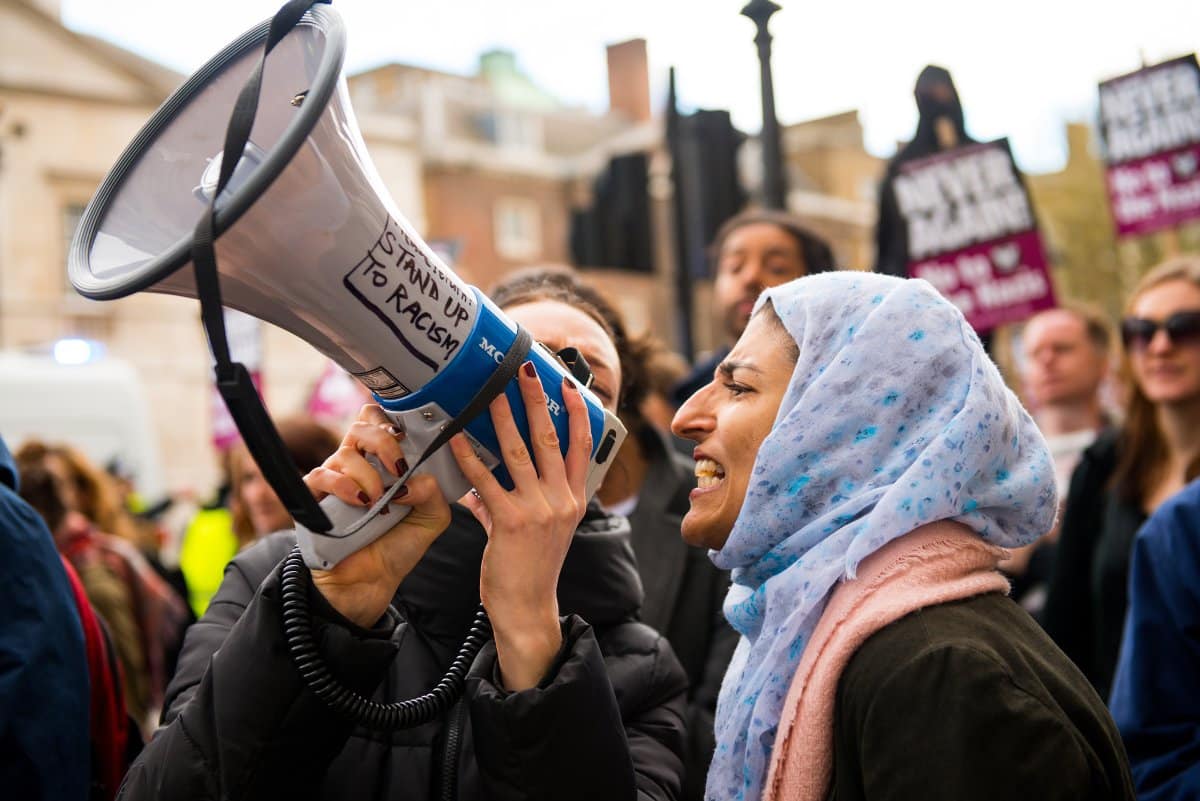Socialism and anti-fascism have been listed as potential signs of extremism within the UK’s Prevent scheme, sparking debates on civil liberties and counter-terrorism strategies. Here’s the full story.
What is Extremism?

Recently, there has been a massive increase in the debate surrounding what is and what is not listed as extremism in the United Kingdom.
Islamism or Islamophobia?

Following statements by politicians who have warned of the dangers of Islamism, derided by many as Islamophobic, the topic is back at the forefront of political and societal debates in the country.
Prevent

In particular, the government’s Prevent scheme, designed to counter radicalization, has been the subject of continued scrutiny and intense criticism.
Left-Wing Ideologies

A recent revelation has shown that on the official government Prevent document, several left-wing ideologies are listed as being potential signs of extremism.
Broad Net

The almost absurdly broad net being thrown by the Prevent program has sparked controversy and raised serious questions about the scheme’s effectiveness and implications.
Awareness Training

The document in question, part of the Prevent awareness training, identifies various ideologies deemed as potential precursors of terrorism.
Extreme Views

Among these are beliefs in socialism, communism, and anti-fascism. These ideologies, which underpin the political beliefs of vast parts of the country, have now found themselves listed alongside more traditionally recognized extremist ideologies like Islamism and extreme right-wing views.
“Socialism and Communism”

In the segment on left-wing ideologies, the report states, “Two broad ideologies: socialism and communism. Each are united by a set of grievance narratives which underline their cause.”
Broader Definition

If this definition were not broad enough, the Conservative government is contemplating broadening the definition of extremism further.
Prevent Implementation

The proposed expansion could have significant implications for the scope and implementation of the Prevent scheme, potentially altering the landscape of ideological surveillance in the UK beyond recognition.
“Far Too Nebulous”

Critics of the newly released report are many and varied. The former police head of counter-terrorism, Neil Basu, was particularly blunt in his criticism, stating, “That is far too nebulous, and there is no qualification. It might lead to unforeseen consequences such as overwhelming the system and bringing the system into disrepute.”
“Very Fragile”

He continued: “The reputation of Prevent is still very fragile. It makes the haystack unnecessarily bigger in which you are trying to find the needle.”
Strange Bedfellows

The range of criticism was so broad that, in a rare combination, former police found themselves in agreement with human rights groups.
“Politicized Abuses”

From the human rights organization Rights and Security International, Jacob Smith was equally scathing in his criticism, stating, “For years, we have expressed concern about how the government’s broad concept of ‘extremism’ could be open to politicized abuses. It appears that this concern has now been realized through a blatant distinction between how the government wants to treat people on the ‘left’ versus people on the ‘right’ under Prevent.
“Problem for Democracy”

He continued: “Our concern is only heightened by government rhetoric during the past few days that appears to be targeting British Muslims and protesters for Palestinian rights. If ‘extremism’ can mean anything the government wants it to mean, that’s a clear problem for democracy.”
Avalanche of Criticism

In response to the avalanche of criticism, a Home Office spokesperson stated, “Prevent deals with all forms of radicalization and it is important that this is effectively communicated within our training products so that frontline professionals are equipped to take the appropriate action.
“Regularly Updated”

They continued, “All training products are regularly updated to ensure they are reflecting the latest threat picture.”
Concerns Persist

However, concerns persist regarding the government’s broader agenda and the potential targeting of specific political groups or ideologies under the guise of counter-terrorism.
Extreme Views

Despite the controversy surrounding Prevent, the document sheds light on the two primary ideologies driving the terrorist threat in the UK: Islamism and extreme right-wing views.
Counter-Terrorism

Understanding these dynamics is crucial for effective counter-terrorism strategies and resource allocation within Prevent and other security initiatives.
Freedom of Expression

However, critics argue that including certain ideologies in Prevent’s warning signs raises serious questions about freedom of expression and political dissent.
Acceptable Activism

Ilyas Nagdee from Amnesty International stated, “Prevent is brazenly being used here to target political expression as it has long been criticized for doing. The government should not be in the business of rolling out training and guidance on what they deem acceptable or unacceptable political ideologies and forms of activism.”
Where Surveillance Meets Civil Liberties

While Prevent aims to intervene early and prevent radicalization, the inclusion of certain ideologies in Prevent’s warning signs has reignited long-dormant debates surrounding extremism, surveillance, and civil liberties in the UK.
Wide Dragnet

While the government’s priority should always be protecting its citizens, there is a real risk that, in order to address the very real threats posed by extremist ideologies, democratic debate and individual freedoms may be caught up in a dragnet that is simply too wide.
More Articles Like This…
Broken Britain: 12 Reasons Behind the UK’s Decline
Say the Unsayable: 10 Occasions When Farage Spoke His Mind About Britain
The post Socialism and Anti-Fascism as Terror Warnings Flags, According to UK Prevent Scheme first appeared on Edge Media.
Featured Image Credit: Shutterstock / John Gomez.
Grant Gallacher is a seasoned writer with expertise in politics and impactful daily news. His work, deeply rooted in addressing issues that resonate with a wide audience, showcases an unwavering commitment to bringing forth the stories that matter. He is also known for satirical writing and stand up comedy.

